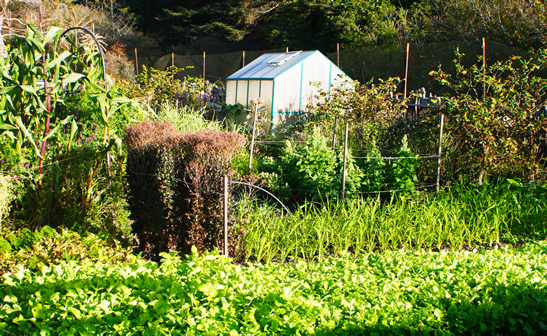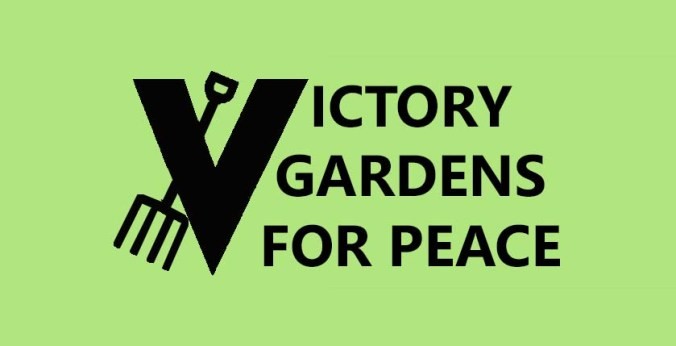A New Vision for the Future of GROW BIOINTENSIVE® VGfP crops include rare flour corn from Peru,
"The total harvest from victory gardens was tremendous. It made the difference between scarcity and abundance. The Department of Agriculture surveys show that 42 percent of the fresh vegetables consumed in 1943 came from victory gardens. This should clearly emphasize the far-reaching importance of the victory garden program." But is war the only unifying force that will get people engaged in fighting a common enemy?. In the early 1900s William James wrote The Moral Equivalent to War. This important work sought an alternative means to engage individuals in creating a better future through working together in service to community. James believed that such work could uplift the lives of everyone and strengthen communities across America. His book became the foundation of the Civilian Conservation Corps, the Peace Corps, and numerous philanthropic foundations and non-profit organizations and volunteer associations With this same intention, in 1972 John Jeavons helped start Ecology Action, a non-profit, which began studying the global food crisis and the potential of biologically intensive agriculture to alleviate poverty. Since then, the investigation into best agricultural practices from around the world and throughout history has led to the development of the GROW BIOINTENSIVE (GB) method. This method incorporates eight basic principles of whole-system sustainability which can be applied anywhere food can be grown. The eight principles help individuals refine their approach to growing food in a way that ensures everyone, everywhere, can build their soils, grow their food and increase the health of their communities. Today, the challenges are huge. We don't need any more enemies—we need unification towards solving these challenges. The Victory Gardens for Peace Initiative is a means to engage everyone into taking action, to empower themselves through the simple act of growing a sustainable garden. Ecology Action and the Victory Gardens for Peace Initiative see the challenges as opportunities to demonstrate what is possible when we work together to build a better future for everyone. As our garden and programs continue to expand we are looking forward to what this new vision brings to our community and abroad as a demonstration model for the future of GROW BIOINTENSIVE. The Victory Gardens for Peace Mini-Farm is located in the town of Mendocino, California, at the Stanford Inn by the Sea Eco-Resort. The fruit born from the partnership of Ecology Action and the Stanford Inn continues to inspire and enrich the lives in our community and abroad. Our garden has been a place of learning for people from around the world and the site of some very important research and development in the growing of soil, food and community. We also host several training programs, internships and apprenticeships. Victory Gardens for Peace Seed Bank Exchange connects gardeners and farmers through the saving of seeds and offers over 100 varieties of rare, locally adapted heirloom seed grown out by our community, available to anyone free of charge. We hope that by the end of 2017 our website victorygardensforpeace.com will be up and running. If you have any questions, feel free to contact me at Matt[at]Victorygardensforpeace.com. To donate to this important work or for information about our programs and training, click here. To a more peaceful and sustainable future for all! Related topics in this issue:
top | Newsletter Home |Table of Contents| Archive
|



 We are excited to announce that the Green Belt Mini-Farm and RhythmicWater SeedBank have been renamed Victory Gardens for Peace Mini-Farm (VGfP) and Victory Gardens for Peace Seed Bank Exchange.
We are excited to announce that the Green Belt Mini-Farm and RhythmicWater SeedBank have been renamed Victory Gardens for Peace Mini-Farm (VGfP) and Victory Gardens for Peace Seed Bank Exchange.